|
|
|
|
Witches hats and broomsticks are some of the most recognizable symbols of Halloween, and “witch” remains one of the most popular Halloween costumes. But where did the witch come from? Witches have always been associated with the power of women — for good and for bad.
Today in The Conversation Canada, Kim Stratton at Carleton University takes us on a compelling and fantastical journey through history to look at witches from their origins to the present-day.
And speaking of today's witches, witch-identified folks in the United States are using social media to #WitchTheVote before the Nov. 3 election. As Jessalyn Keller and Alora Paulsen Mulvey from the University of Calgary write, witches use the internet to engage in magical resistance, a “women-led form of mediated, political activism.”
Witches are back, baby, and they’re more powerful than ever.
Also today:
All the best.
|
Nehal El-Hadi
Science + Technology Editor
|

|
|
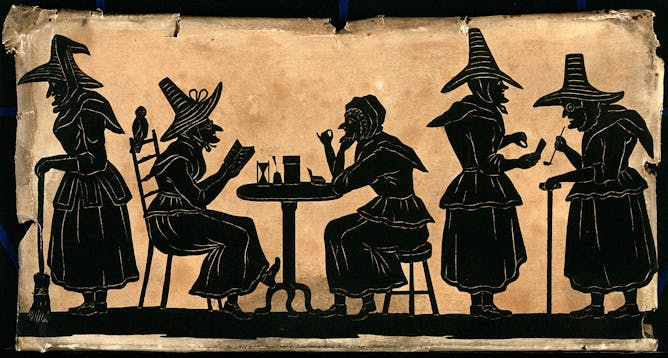
Witches have a long history dating back to Ancient Rome. This print from 1815 is by British engraver Edward Orme.
(Wellcome Collection)
Kim Stratton, Carleton University
The role of witches in society relates directly to the role of women in society. And during times of social upheaval and changes, witches represent access to women's power.
|
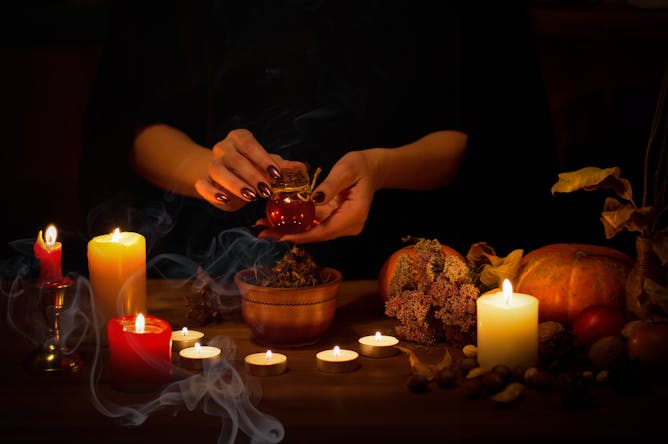
Witch-identified folks are sharing spells online in an act of magical resistance in advance of the U.S. election.
(Shutterstock)
Jessalynn Keller, University of Calgary; Alora Paulsen Mulvey, University of Calgary
As the U.S. election approaches, various groups have mobilized to vote. But witches have taken it a little further, organizing online spellcasting meet-ups to enagage in magical resistance.
|
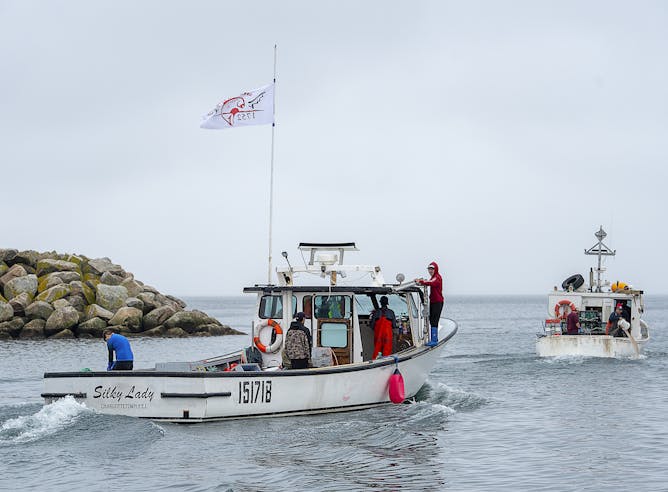
Indigenous lobster boats head from the harbour in Saulnierville, N.S. on Oct. 21, 2020.
THE CANADIAN PRESS /Andrew Vaughan
Lucia Fanning, Dalhousie University; Shelley Denny, Dalhousie University
The dispute over the Mi'kmaw lobster fishery isn't only about money — it's about who has the authority to govern and define these activities.
|
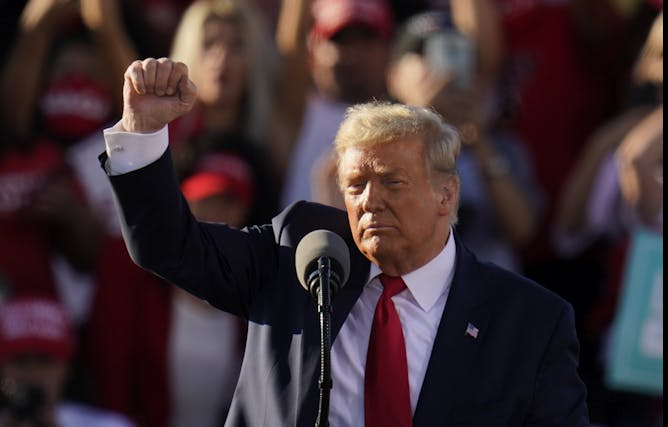
Will Donald Trump win again? History suggests it’s possible. The president pumps his fist after speaking at a campaign rally at Phoenix Goodyear Airport on Oct. 28, 2020, in Goodyear, Ariz.
(AP Photo/Ross D. Franklin)
Thomas Klassen, York University, Canada
Americans at the ballot box have historically adopted the adage: Better the devil you know than the devil you don't. Does that mean Trump will win a second term?
|
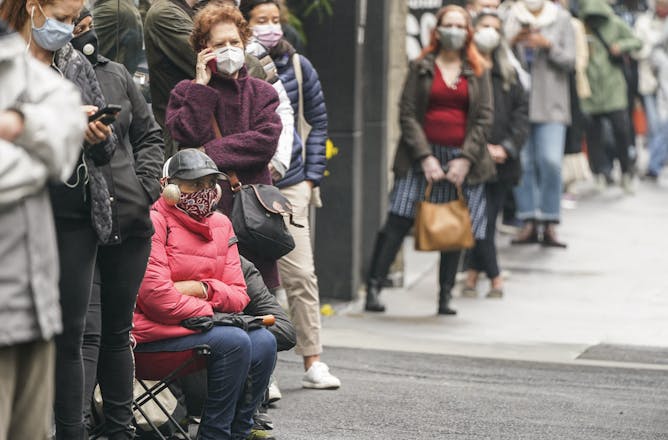
Are these trusting Americans? People line up at an early voting location near Lincoln Center on Oct. 26, 2020, in New York.
(AP Photo/Frank Franklin II)
Cary Wu, York University, Canada
Democracy only works well when citizens participate in the democratic process and participate equally. But in the United States, lack of trust is eroding democracy's promise.
|
La Conversation Canada
|
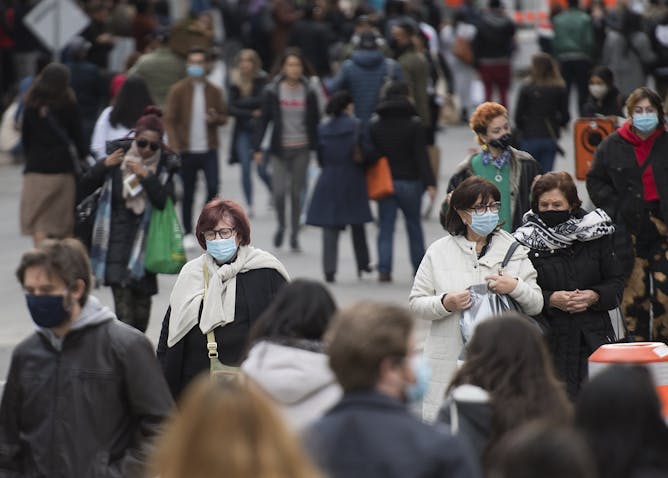
Des gens portent des masques en marchant dans une rue de Montréal, le 24 octobre.
La Presse Canadienne/Graham Hughes
Sheena Cruickshank, University of Manchester
Les niveaux d’anticorps diminuent naturellement – la question clé est de savoir si les personnes infectées maintiennent des niveaux adéquats de cellules T et de cellules B.
|
Politics
|
-
Regina Bateson, L’Université d’Ottawa/University of Ottawa
Women and people of color continue to appear on ballots less often than white men, and that, in part, is due to concerns by American voters that others will not view these candidates as electable.
|
|
COVID-19
|
-
Sarah Pitt, University of Brighton
Winter weather forces us to congregate inside but evidence suggests cold, dry air also helps spread respiratory viruses.
|
|
Environment + Energy
|
-
Lucas Alejandro Garibaldi, Universidad Nacional de Rio Negro; Claire Kremen, University of British Columbia; Erle C. Ellis, University of Maryland, Baltimore County; Sandra Díaz, Universidad de Córdoba (Argentina)
The Earth is losing plants and animals at rates not seen in millions of years. Ecologists explain how protecting habitat on working lands – farms, forests and ranches – can help conserve species.
|
|
| |
| |
| |
| |
| |
| |
|
|
|
|
|
|
|